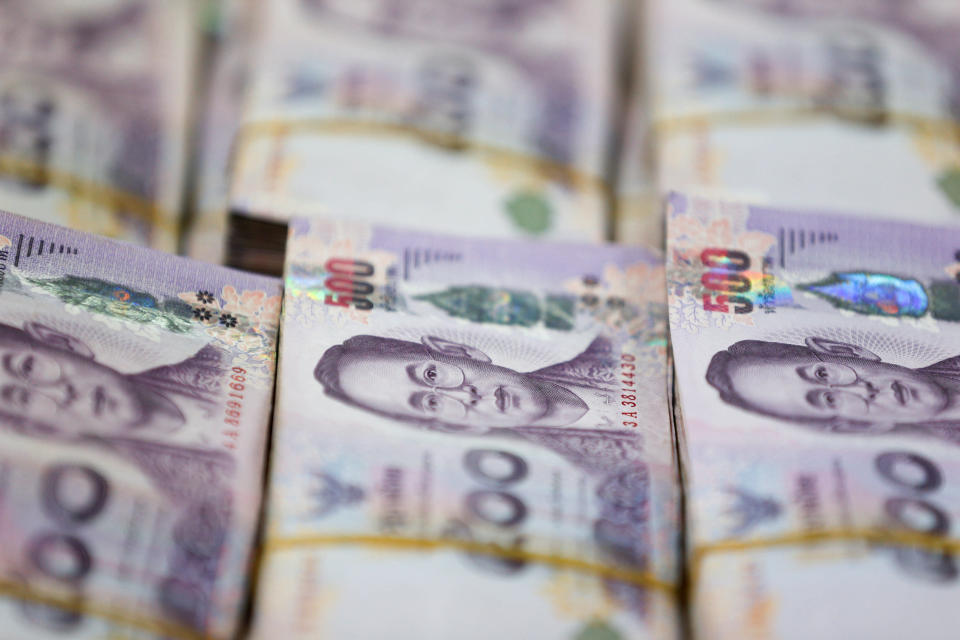Baht gives up Asia's top currency seat amid political gridlock

By Yumi Teso
(Bloomberg) -- Asia’s best-performing currency in the first quarter is starting to lose its momentum amid Thailand’s political gridlock, a stronger dollar and speculation of dividend-related fund outflows.
The baht weakened to as low as 32.049 per dollar, the weakest level since Jan. 9, and falling through the psychological support of 32. It was down 0.2 percent at 32.020 as of 12:22 p.m. in Bangkok, after falling through the 100-day moving average for the first time since mid-December earlier this week.
Sentiment for the Thai currency has deteriorated as concerns about political stability linger after the nation held its first general election in March since the 2014 coup. The Office of the Ombudsman said Tuesday that it has accepted a petition seeking a review by a court on whether the election should be annulled. A Pheu Thai party candidate who won a constituency seat in the election will be banned from politics for at least one year for allegedly buying votes, according to the Election Commission.
“As for domestic factors, we have hick-ups in the political landscape and also have some of the impact from the dividend season” that contributed to the weaker baht, said Roong Sanguanruang, a market analyst at Bank of Ayudhya Pcl in Bangkok. The decline should be limited as “the fundamentals are still looking sound, if you look at the external position of Thailand,” she said. The bank expects a recovery of the baht to 31.75 by end-June.
The baht has weakened 0.9 percent against the dollar this quarter, following a 2.5 percent gain in the first three months of 2019. It has fallen seven of the past 10 years through 2018 in the second quarter partly due to foreign repatriation of Thai dividend payments and a seasonal fall in tourist demand. The amount of dividends to be paid to foreigners in April and May is estimated at 87.6 billion baht ($2.7 billion), about the same as last year, according to estimates by Kasikornbank Pcl.
© 2019 Bloomberg L.P

 Yahoo Finance
Yahoo Finance 